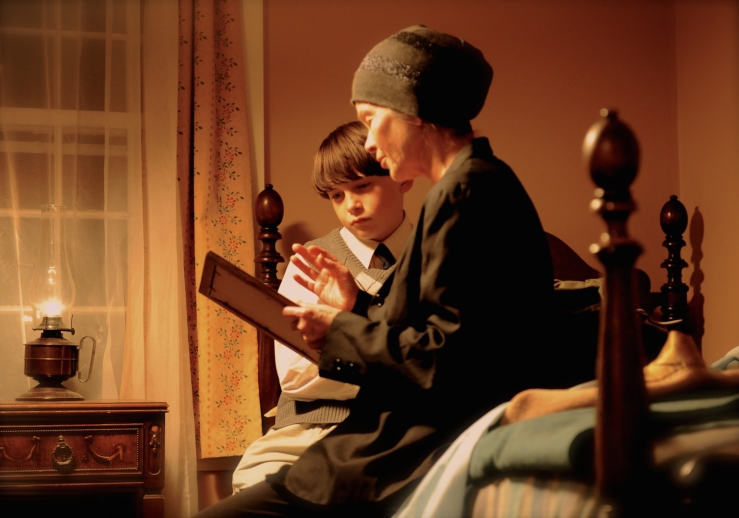I came across this little clip in an 1891 Yearbook for the Christian Home.
 Latin and Ditches
Latin and Ditches
John Adams, the second President of our land, used to relate the following anecdote:
“When I was still a boy, I had to learn the Latin Grammar, but I was lazy and hated the thing. My father wished to send me to college, and therefore I studied the Grammar, until I could no longer bear it. Then I went to my father and said to him that I had no desire to study, and asked him to direct me to another occupation. It was against his wishes but he was ready with an answer. “Well John,” he said, “if Latin Grammar does not suit you, you can try digging ditches, perhaps that will be better; my pasture over there needs a ditch, and you can set aside the Latin and try that.”
This seemed a delightful change, and off to the meadow I went. But I soon learned that ditch-digging is harder than Latin, and the first morning was the longest I ever experienced. That day I ate the bread of hard work, and I was glad when evening came. That night I made some comparison between Latin Grammar and ditch-digging, but didn’t say a word about it. I dug the next morning, and wanted to return to Latin by noon, but it was humiliating, and I couldn’t bear that. By the second night, weariness conquered my pride; and though it was the hardest test I had ever undergone, I finally brought myself to say to my father, that if he chose, I would go back to Latin Grammar. He was glad of it, and if I have since gained any distinction in the world, I owe it all to the two days of labor in that abominable ditch.”
 “Yet we dare not in this regard follow the fanatics, as if the human sciences were utterly useless or even detrimental to the knowledge of the Holy Scriptures and heavenly teaching. It is certainly necessary to study languages and well-informed grammars. Dialectic, rhetoric, and familiarity with the rest of philosophy is beneficial as well, and even quite necessary” (100).
“Yet we dare not in this regard follow the fanatics, as if the human sciences were utterly useless or even detrimental to the knowledge of the Holy Scriptures and heavenly teaching. It is certainly necessary to study languages and well-informed grammars. Dialectic, rhetoric, and familiarity with the rest of philosophy is beneficial as well, and even quite necessary” (100).

